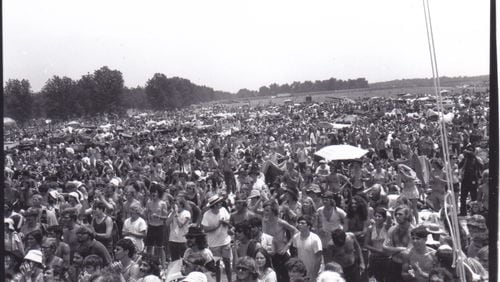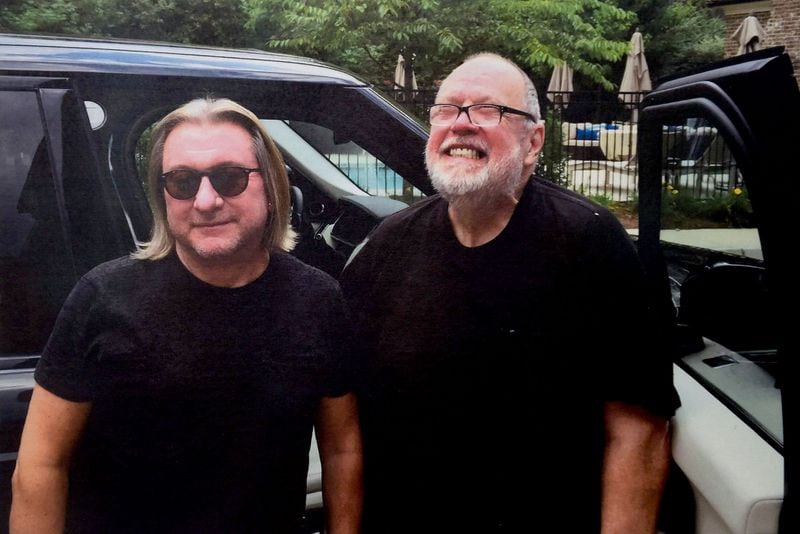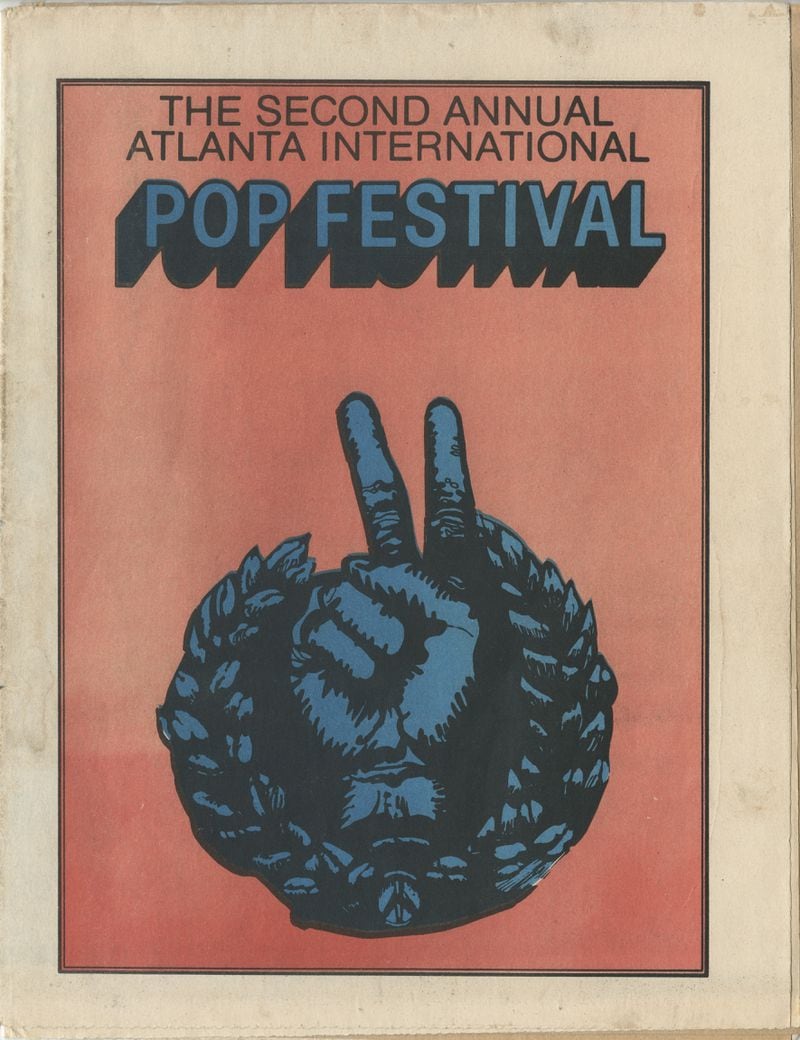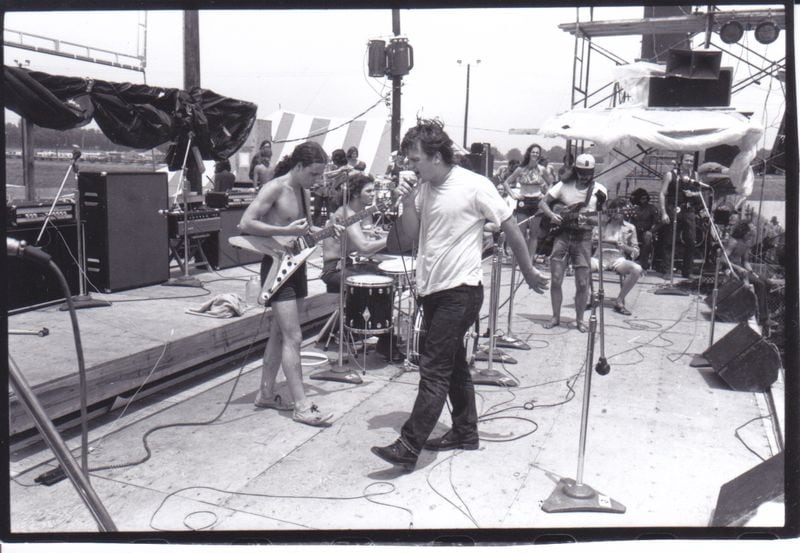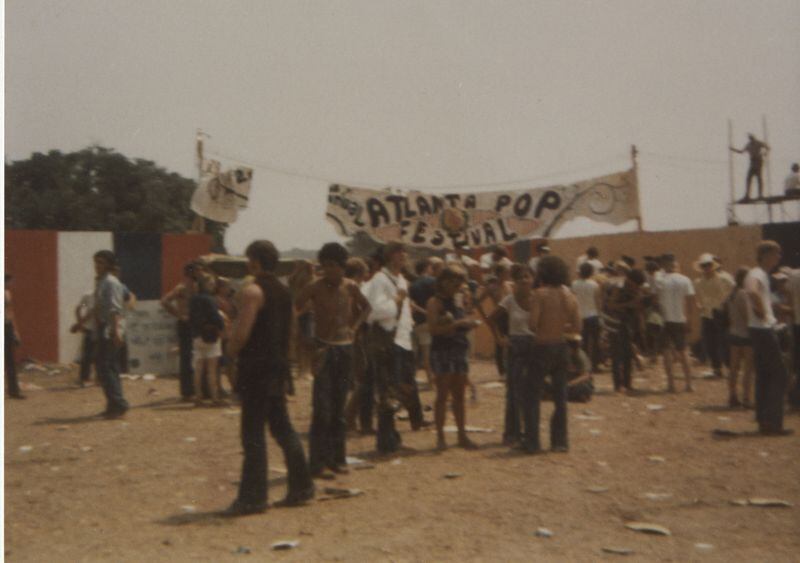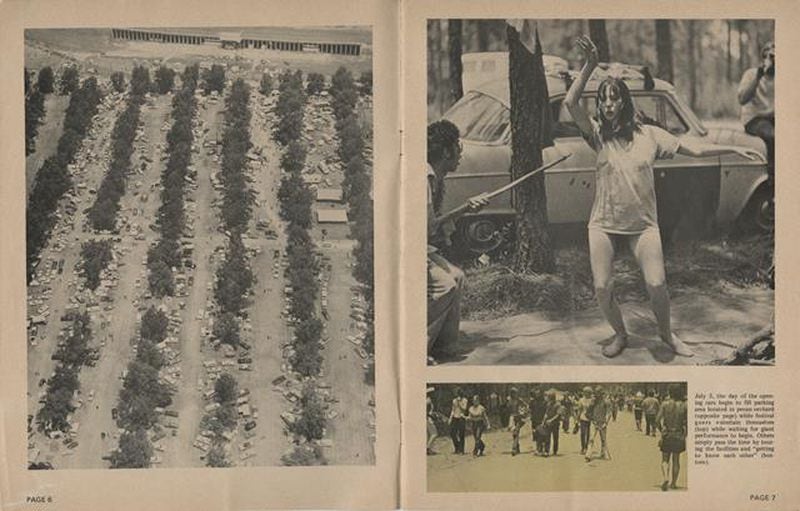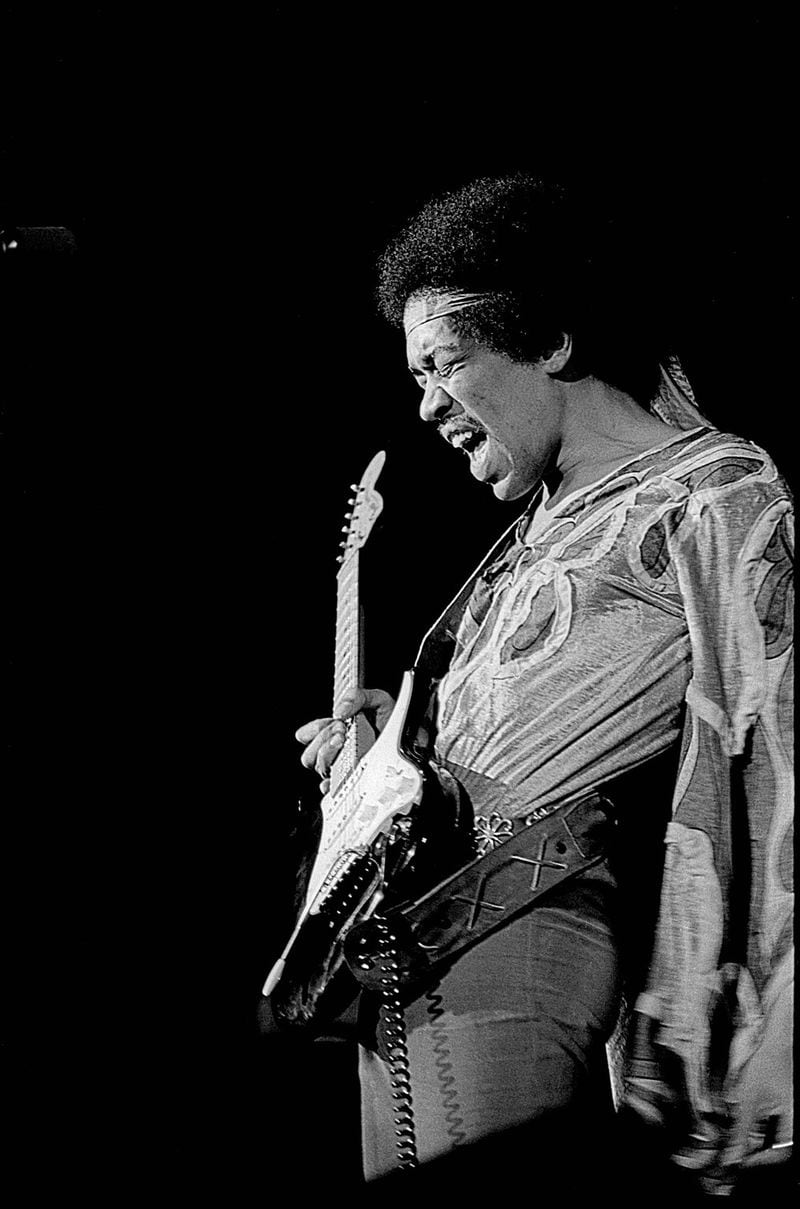It’s remembered as one of the largest gatherings in Georgia history, with nearly 400,000 attendees.
It’s romanticized as the spot that anchored an incendiary Jimi Hendrix performance two months before his death.
And it’s revered for providing an upstart Southern rock outfit from Macon – The Allman Brothers Band – with its first major concert platform.
The second Atlanta International Pop Festival, held July 3-5 (although it technically ended in the morning hours of July 6) in 1970 was also the follow-up opportunity for a young Atlanta concert promoter, Alex Cooley, to expand and improve on the inaugural Atlanta International Pop Festival, which he spearheaded a year earlier at Atlanta International Raceway in Hampton.
For this one, he moved to Middle Georgia Raceway in Byron, where he could continue his ambition to spotlight Atlanta as a viable music market.
RELATED>> An oral history of the 50th anniversary of the first Atlanta Pop Festival in 1969
“Agents wouldn’t book here back then because they thought we were a bunch of dumb rednecks,” said Peter Conlon, Cooley’s longtime friend and business partner, who recalled many of the scenarios and stories that Cooley, who died in 2015, shared with him. “But after the first pop festival in 1969, he showed them. That festival was more successful than Woodstock (the same year), but it didn’t get any attention because we weren’t a media market in those days. New York gave Woodstock the attention, but Woodstock was a disaster.”
The site of the second Atlanta International Pop Festival still contains the racetrack, but the surrounding area is housing. An historic marker was unveiled at the location in September 2012, and in 2017, a stretch of U.S. 41 in Byron was renamed Cooley-Conlon Parkway in honor of the music business wizards who would go on to create Concert/Southern Promotions and debut Music Midtown in 1994. (Though Conlon didn’t yet know Cooley in 1970, he and some friends tried to attend the festival, but U-turned because of traffic. “People had camped out a week in advance – you’re talking about 100,000-200,000 cars. Traffic was stopped all the way to the Delta sign on 1-85. We went to 7-11, got a cooler of beer and turned around.”)
But even 50 years later, there is no arguing the prescient nature of Cooley’s festival instincts.
In addition to the Allmans and Hendrix and his Experience, the 1970 lineup — $14 for a ticket — boasted a motley musical mélange that included psychedelic-rockers (Spirit, Procol Harum), blues guitarists (B.B. King, Johnny Winter), glam (Mott the Hoople), country (Poco) and whatever the Hampton Grease Band was morphing into at the time.
The Atlanta musicians, fronted by the distinctive Bruce Hampton (the “Col.” moniker would come later), weren’t well-known. In fact, Cooley had invited the band to perform at the 1969 festival, only to bump them at the last minute when Grand Funk Railroad showed up and wanted to play.
That snub was far outweighed by Cooley’s magnanimousness in 1970.
"That's who Alex was. Even though we weren't a big, national name, he wanted (the festival) to embrace — and be embraced by — the community in the best way possible," said Glenn Phillips, the HGB guitarist who lives in Brookhaven. "He had both us and the Allman Brothers play two sets on two different days. This was generosity beyond common sense, but I'm very grateful for it."
Phillips was galvanized by the “sea of people” facing the band as they played – “That was something we had never seen before” – and HGB’s appearances that weekend scored them a deal with Columbia Records.
"That never would have happened without the Pop Festival," Phillips said. "How does a band as esoteric as us get a deal with Columbia? The only reason it happened was because of the Pop Festival … Clive Davis (then-president of Columbia Records) was at the Monterey Pop Festival (in 1967) and he knew that something was happening that he had to take the pulse of, so he sent (record company) people to Atlanta. They saw the audience reaction to us and rushed back and told Clive, 'This band is going to explode.' They had no idea how off the beaten path the band was musically — they just saw the reaction. They were not signing us because they liked 20 minute songs about Halifax that I wrote by taking lyrics out of the encyclopedia."
While the Hampton Grease Band landing a major record deal was significant for the group, an even greater cultural shift occurred that weekend.
Georgia’s governor at the time, Lester Maddox, was vehemently opposed to the festival in general and, as a staunch segregationist, the presence of Hendrix atop the concert bill provoked another layer of outrage.
“You had Richard Nixon as president, Maddox as governor and a black headliner. Maddox did everything he could to keep that festival from happening. He even sent the state patrol down there and they just stood around all day, not bothering anyone, because no one was doing anything wrong,” Conlon said.
Phillips recalled seeing Hendrix perform in 1968 at the Atlanta Municipal Auditorium — four months after Maddox denied Martin Luther King Jr. the honor of having his body laid out in the state capitol.
“These were segregated concerts, and Hendrix was the only black artist onstage, headlining, in an auditorium filled with white kids,” Phillips said. “Then two years later he comes to the Pop Festival. Maddox did not like that this event was taking place in Georgia and he certainly didn’t like the fact that it was being headlined by an African American. But, in order for there to be social and political change, cultural change leads the way.”
Still, despite the 1970 event solidifying the Southeast as fertile concert ground and hundreds of thousands of people commingling peacefully for more than three days, the state enacted stringent restrictions that made it nearly impossible for future music festivals to be granted a permit.
No matter, Hendrix’s Atlanta Pop Festival performance achieved legendary status over the years and in 2015 became the subject of the Showtime documentary, “Jimi Hendrix: Electric Church” (it’s still available on Blu-ray and DVD).
The lasting impact of both Atlanta International Pop Festivals remains a major chapter in Cooley’s legacy.
“Alex loved events and he believed in them. They built those festival stages out of 4x4’s and plywood. They built the fencing out of wood. The light towers were telephone poles – there weren’t any companies back then to call to build a stage. He had crews in Byron for two months,” Conlon said. “Alex was a pariah to some people. You know, because he was doing all of these terrible things to their youth with that rock ‘n’ roll music…But Alex was a genius. He was so well-respected by the music community. He always believed it was important for the audience to have as memorable an experience as the artist.”
About the Author
